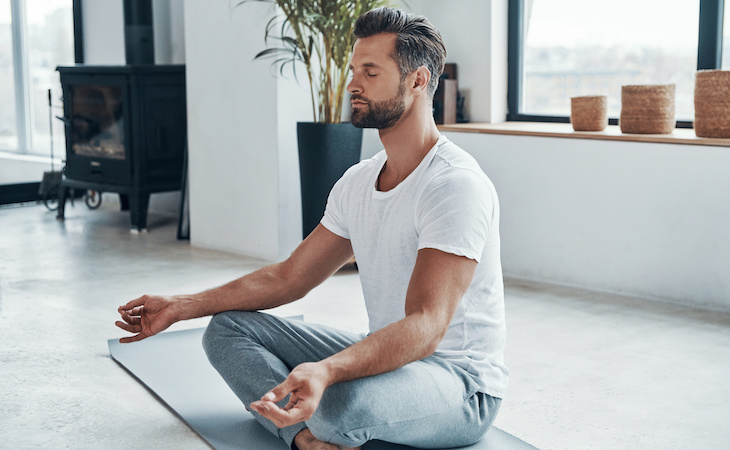In recent years, people have been increasingly looking for ways to improve their moods, lessen anxiety and depression, and feel less stressed in general.
While there are certainly many medical interventions that can alleviate these concerns, from medications to other types of therapies, there are things you can do on your own that are backed by medical experts and may make a difference.
That’s where the vagus nerve comes in. Never heard of the vagus nerve? It turns out that tapping into it could make you feel a lot calmer and even help you sleep better.
Ahead, we’ll explore everything you need to know about the vagus nerve and its connection to sleep.
What is the vagus nerve?
So, what is the vagus nerve? It’s “the main nerve of the parasympathetic nervous system,” says Nilda Agnes Abellera, MD, medical director of InfuzeMD in Milpitas, Calif. She explains that the vagus nerve helps us regulate our heart rate, immune system, and other bodily functions, such as our digestion.
The vagus nerve is the longest cranial nerve, beginning in the medulla oblongata, which is the part of the brain that connects to the spinal cord, adds Abellera. From there, the vagus nerve traverses down to your abdomen and the vital organs in that area of the body, she says.
“The vagus nerve regulates our heart rate, controls the digestive process, and has a hand in our individual moods including how we respond emotionally,” Abellera says. “These are the primary functions that the vagus nerve is responsible for.”
How does the vagus nerve impact sleep?
In addition to these functions, Abellera says the vagus nerve plays a “huge role” in determining the quality of sleep we get daily.
“The vagus nerve regulates our heart rate, controls the digestive process, and has a hand in our individual moods including how we respond emotionally.”
Nilda Agnes Abellera, MD, medical director of InfuzeMD in Milpitas, Calif.
“Much like its other regulatory functions, the vagus nerve helps us relax and reduce stress, which leads to a more restful night’s sleep,” she explains.
Vagus nerve sleeping position
To stimulate the vagus nerve, does sleeping on the right side help, or should it be the left? Can the sleeping position better regulate sleep?
In short, there isn’t an ideal sleeping position to stimulate the vagus nerve.
“However, maintaining the alignment of our spine when we sleep is very important when it comes to sleep quality,” says Abellera. “The best way to do this is to sleep on your back, with the help of a supportive pillow, since that may help with achieving a restful night’s sleep and increase the quality of sleep we experience daily.”
Vagus nerve exercises for sleep
You might be wondering if there are any exercises you can do to calm the vagus nerve and boost sleep quality. Abellera says yoga is a “great form of exercise to calm the vagus nerve and improve sleep.”
In general, Abellera says any forms of exercise that focus on deep breathing and relaxation, like yoga, are ideal to stimulate the vagus nerve. In turn, these exercises reduce stress and promote relaxation, which Abellera reiterates are “key factors in improving our sleep quality.”
FAQs
What is the best sleeping position to stimulate the vagus nerve?
There actually isn’t just one position that can stimulate the vagus nerve. As Abellera notes, generally, it’s important to maintain the alignment of your spine while sleeping. The best way to do this is to sleep on your back, with the help of a supportive pillow.
Where is the pressure point to calm the vagus nerve?
“The pressure points to calm the vagus nerve can be found in the neck, chest, and abdomen, as well as other parts of the body,” Abellera says. “A couple of other popular pressure points to calm the vagus nerve can be located on the wrist and leg.” These pressure points are HT7 and ST36, respectively.
What is the fastest way to calm the vagus nerve?
“One of the fastest ways to calm the vagus nerve is through an exercise called deep diaphragmatic breathing,” Abellera says. “In simple terms, it’s the act of taking slow, deep breaths as a way to calm the body and reduce the stress that one is experiencing in that moment. It’s why we often see people in stressful situations or after experiencing some sort of trauma focus on their breathing with those deep breaths.”
Is stress keeping you awake at night? Here’s how to calm anxiety for better sleep.




